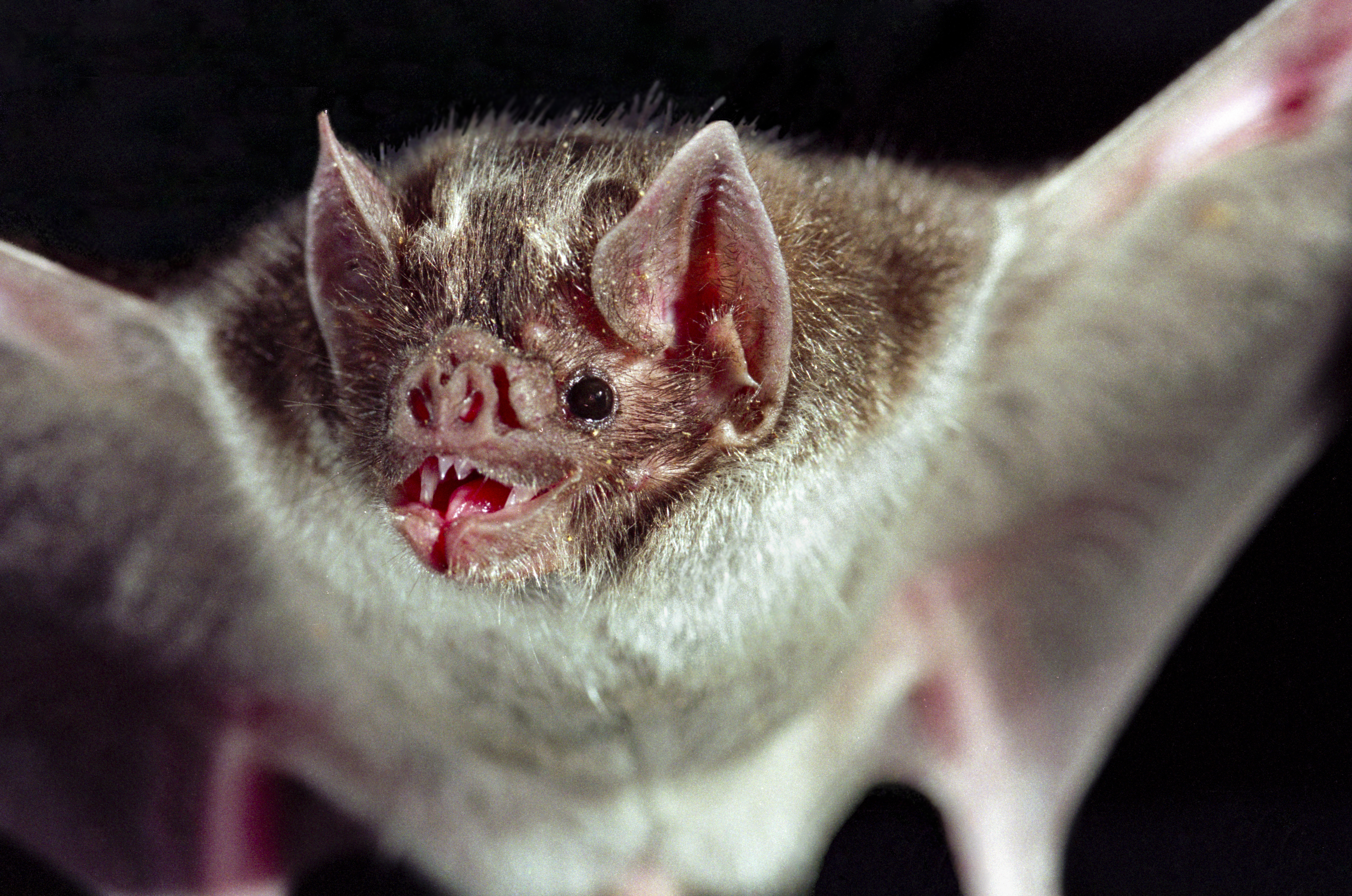When it comes to carrying on with daily life among those who may be sick, vampire bats and humans seem to have a lot in common. Researchers from the University of Texas at Austin, Ohio State University, the Smithsonian Tropical Research Institute, and the University of Connecticut recently published research in the Journal of Animal Ecology documenting how behavior in the highly social vampire bat is influenced by illness in members of their roost.
Similar to humans, vampire bats are very social, says UConn ecology and evolutionary biology Professor Daniel Bolnick.
“There is a lot of food sharing and grooming within a roost of bats and this is not just between mates or between parents and offspring,” he says. “The bats seem to form bonds like friendships with other individuals in the group.”
Under normal circumstances, these bats can be quite altruistic, says Bolnick, grooming and feeding one another, even if they are unrelated.
The researchers wanted to see whether these interactions were altered by illnesses in some members of the group.
“By asking how different social connections change in response to sickness, we can better understand how social networks change as a pathogen spreads,” said Gerry Carter, research associate at the Smithsonian Tropical Research Institute and assistant professor of biology at Ohio State.
The project was led by first author Sebastian Stockmaier, a graduate student at the University of Texas at Austin, and advised by Bolnick, along with co-authors Carter and Rachel Page of the Smithsonian Tropical Research Institute.
The study did not involve a pathogen. Instead, Stockmaier challenged the immune systems of some of the bats using a bacterial chemical called lipopolysaccharide or LPS. Bats exposed to LPS were not able to transmit illness to other bats, but were left with symptoms of sickness such as lethargy and fever.
The experiment showed that social activities such as grooming decreased; however the vital activity of food sharing continued.
“What we demonstrated in this study is that the type of social connection matters,” Carter said. “Just as in the recent COVID-19 outbreak, we would expect that a virus transmitted by contact would spread mainly within family groups, because these social connections will not be reduced by sickness behavior. In vampire bats, as well as in humans, the most important social behaviors and relationships don’t change as much when individuals are sick.”
Bolnick says bats are not unique in this regard.
“There are other animals that change their social interactions when they get sick,” he says. “Animals seem to have lots of cues that they send to one another, and they do seem to be sensitive to infection status. In light of the current outbreak of COVID-19, this is extremely interesting in terms of what other organisms can teach us about how disease changes social transmission.”



